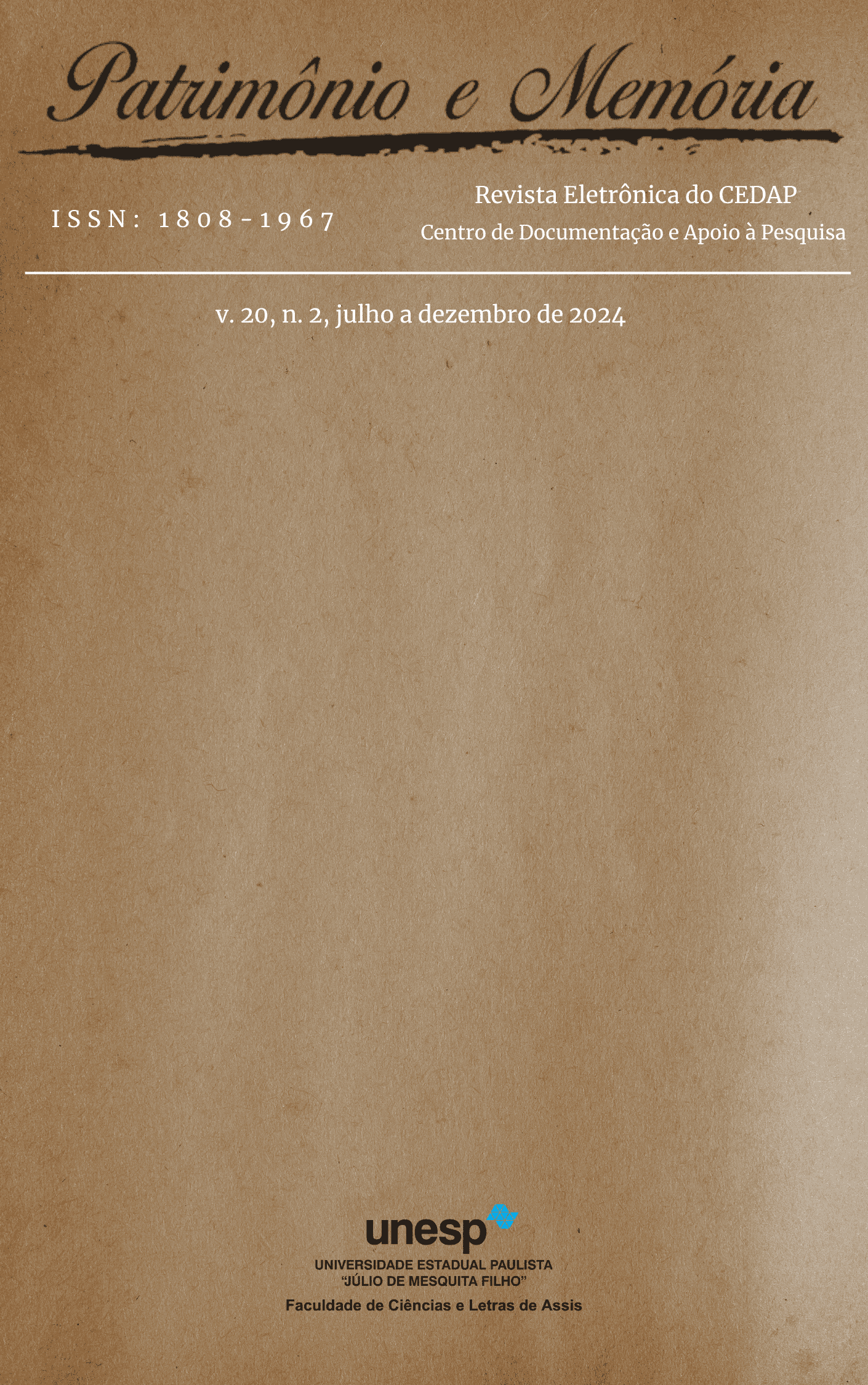Educación y emancipación
la transformación de las mujeres indígenas frente a las jerarquías coloniales y patriarcales
DOI:
https://doi.org/10.5016/pem.v20i2.2850Palabras clave:
Mujeres indígenas, educación, colonialidad de género, resistencia, patriarcadoResumen
El presente estudio tiene como objetivo analizar el impacto del acceso a la educación superior en la emancipación y resistencia de las mujeres indígenas frente a las estructuras coloniales y patriarcales. La investigación adoptó un enfoque cualitativo, basado en análisis documentales y aportes bibliográficos. El estudio identificó que el ingreso a las academias científicas representa un hito de resistencia y transformación para las identidades indígenas femeninas. Estas mujeres enfrentan no solo obstáculos económicos e institucionales, sino también el patriarcado arraigado en sus propias comunidades. Al alcanzar la educación superior, estas guardianas de la vida conquistan espacios de liderazgo y protagonismo, rompiendo con estereotipos y prejuicios. Además, el retorno de estas mujeres cualificadas a sus territorios contribuye a la preservación cultural y al fortalecimiento de las luchas por derechos colectivos. Finalmente, el estudio concluye que, a pesar de los avances, es necesario fortalecer las políticas de inclusión para garantizar la permanencia y el éxito de estas figuras femeninas en las universidades.
Citas
BARDIN, Laurence. Análise de conteúdo. Tradução de Luís Antero Reto e Augusto Pinheiro. São Paulo: Edições 70, 2011.
BANIWA, Gersem José dos Santos Luciano. Educação escolar indígena no século XXI: encantos e desencantos. Rio de Janeiro: Mórula; Laced/Museu Nacional, 2019.
BHABHA, Homi K. The location of culture. London: Routledge, 1994.
BRASIL DE FATO. Como o feminicídio de indígenas se tornou uma realidade invisibilizada no Brasil. 2021. Disponível em: https://www.brasildefato.com.br/2021/12/26/como-o-feminicidio-de-indigenas-se-tornou-uma-realidade-invisibilizada-no-brasil/. Acesso em: 22 fev. 2025.
CABNAL, Lorena. Feminismos diversos: el feminismo comunitário. [S.l.], s.d. Disponível em: https://porunavidavivible.wordpress.com/wp-content/uploads/2012/09/feminismos-comunitario-lorena-cabnal.pdf. Acesso em: 21 jan. 2025.
CARNEIRO, Sueli. Enegrecer o feminismo: A situação da mulher negra na América Latina a partir de uma perspectiva de gênero. São Paulo: Geledés, 2008.
CUSICANQUI, Silvia Rivera. Ch'ixinakax utxiwa: una reflexión sobre práticas e discursos descolonizadores. La Paz: Yachaywasi, 2010.
ESTES, Nick. Our history is the future: Standing Rock versus the Dakota Access Pipeline, and the long tradition of indigenous resistance. London: Verso, 2017.
FANON, Frantz. Os condenados da terra. Rio de Janeiro: Editora Civilização Brasileira, 1961.
FEDERICI, Silvia. Calibã e a bruxa: mulheres, corpo e acumulação primitiva. São Paulo: Editora Elefante, 2004.
FERREIRA, Aurelio Buarque de Holanda. O minidicionário da língua portuguesa. Rio de Janeiro: Nova Fronteira, 2010.
FREIRE, Paulo. Pedagogia do oprimido. Rio de Janeiro: Paz e Terra, 1970.
GOMES, Nilma Lino. Decolonialidade e educação: desafios e perspectivas para a educação no Século XXI. Belo Horizonte: Editora UFMG, 2021.
HALL, Stuart. Cultural identity and diaspora. In: RUTHERFORD, Jonathan (Ed.). Identity: community, culture, difference. London: Lawrence & Wishart, 1990.
INSTITUTO BRASILEIRO DE GEOGRAFIA E ESTATÍSTICA (IBGE). Uma em cada quatro mulheres de 15 a 29 anos não estudava e nem estava ocupada em 2023. 2024. Disponível em: https://agenciadenoticias.ibge.gov.br/agencia-noticias/2012-agencia-de-noticias/noticias/39531-uma-em-cada-quatro-mulheres-de-15-a-29-anos-nao-estudava-e-nem-estava-ocupada-em-2023. Acesso em: 22 jan. 2025.
INTERNATIONAL LABOUR ORGANIZATION. Women in management: review of ILO Standards and Strategies for promoting gender equality. Geneva: International Labour Organization, 2020.
KRENAK, Ailton. Ideias para adiar o fim do mundo. São Paulo: Companhia das Letras, 2019.
LADUKE, Winona. All our relations: native struggles for land and life. Cambridge, MA: South End Press, 1999.
LAWRENCE, Bonita; ANDERSON, Kim. Strong women stories: native vision and community survival. Toronto: Sumach Press, 2003.
LUGONES, Maria. Colonialidade de gênero. In: SEMINÁRIO INTERNACIONAL PENSANDO EMANCIPAÇÕES, 2008, São Paulo. Anais [...]. São Paulo: USP, 2008.
MINISTÉRIO PÚBLICO FEDERAL. Povos indígenas: prevenção de genocídio e de outras atrocidades. 2021. Disponível em: https://www.mpf.mp.br/atuacao-tematica/ccr6/documentos-e-publicacoes/publicacoes/Livro_Povos_Indigenas_Prevencao_de_Genocidio_e_Outras_Atrocidades_4_ago.pdf. Acesso em: 12 dez. 2024.
MINISTÉRIO PÚBLICO FEDERAL DO ACRE. MPF recomenda que UFAC promova ações para combater racismo contra indígenas. 2021. Disponível em: https://www.mpf.mp.br/ac/sala-de-imprensa/noticias-ac/mpf-recomenda-que-ufac-promova-acoes-para-combater-racismo-contra-indigenas. Acesso em: 23 jan. 2025.
MIGNOLO, Walter. The idea of Latin America. Malden: Blackwell, 2007.
ORGANIZAÇÃO MUNDIAL DA SAÚDE. Aborto seguro: orientação técnica e política para Sistemas de Saúde. Genebra: Organização Mundial da Saúde, 2020.
POTIGUARA, Eliane. Metade Cara, Metade Máscara. 1. ed. Rio de Janeiro: Grumin, 2004.
QUIJANO, Aníbal. Colonialidade do poder, eurocentrismo e América Latina. In: LANDER, Edgardo (Org.). A colonialidade do saber: eurocentrismo e ciências sociais. Buenos Aires: CLACSO, 2000.
RUANO-IBARRA, E. del S.; GAMA, V. M. Mulheres indígenas, Ensino Superior e colonialidade de gênero. Revista Antropolítica, Niterói, n. 50, p. 273-299, 2020.
SACCHI, Ângela. Mulheres indígenas e participação política: a discussão de gênero nas organizações de mulheres indígenas. Revista Anthropológicas, v. 7, n. 14, p. 95-110, 2003.
SACCHI, Ângela. Violências e mulheres indígenas: justiça comunitária, eficácia das leis e agência feminina. Patrimônio e Memória, v. 10, n. 2, p. 62-74, 2014.
SAFFIOTI, Heleieth I. B. O poder do macho. São Paulo: Moderna, 1976.
SEGATO, Rita Laura. La nación y sus otros. Buenos Aires: Prometeo, 2014.
SPIVAK, Gayatri Chakravorty. Can the subaltern speak? Reflections on the history of an idea. New York: Columbia University Press, 2010.
UNESCO. Global education monitoring report 2019: gender report. Paris: UNESCO, 2019.
UNESCO. Global education monitoring report 2020: inclusion and education. Paris: UNESCO, 2020.
UNFPA. State of world population 2019: unfinished business. New York: UNFPA, 2019.
UNITED NATIONS DEVELOPMENT PROGRAMME. Human development report 2020: the next frontier. New York: UNDP, 2020.
WYNTER, Sylvia. Towards the sociogenic principle: Fanon, the puzzle of conscious experience, of 'identity' and what it's like to be 'black'. In: DURÁN-COGAN, Mercedes; GÓMEZ-MORIANA, Antonio (Eds.). National identities and socio-political changes in Latin America. New York: Routledge, 2003.
Descargas
Publicado
Cómo citar
Número
Sección
Licencia
Derechos de autor 2024 Patrimônio e Memória

Esta obra está bajo una licencia internacional Creative Commons Atribución 4.0.
Todo el contenido de la revista, salvo que se indique lo contrario, está sujeto a una licencia de atribución Creative Commons BY.


